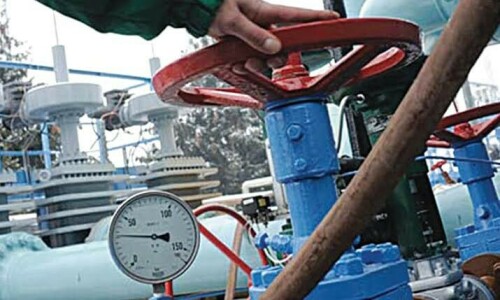BANGKOK: In his one month in office, Thai Prime Minister Abhisit Vejjajiva has made much of the need for human rights and the rule of law at the heart of government.
Yet even as the Oxford-educated Democrat Party leader was first articulating such noble ideals, a shadowy wing of his armed forces was allegedly towing 992 Rohingya boat people from Myanmar out to sea and abandoning them in rickety, engineless vessels.Accounts from survivors who washed up in Indonesia and on India’s Andaman Islands suggest 550 are now dead. The men, all Muslims, also reported beatings and ill-treatment, including four men thrown overboard with their hands tied.
Unsurprisingly and true to form whenever abuse allegations surface — Thailand’s military has denied any wrongdoing.
But the incident refuses to die down, and is casting a harsh light on Abhisit’s commitment to human rights and the extent of the debt he owes the army for its role in bringing him to power after the 2006 coup against Thaksin Shinawatra.
Abhisit promised a thorough investigation, but simultaneously issued a blanket denial of abuse on behalf of the military. His deputy, Suthep Thaugsuban, even suggested the entire episode was cooked up to besmirch the country’s image.
“We are not going to see the Abhisit government going after the military because it was instrumental in his assumption of office,” said Thitinan Pongsudhirak, a political scientist at Bangkok’s Chulalongkorn University.
“The military has substantial leverage. The Democrats have made a Faustian pact that Abhsit has to live with. That’s why he has been wishy-washy on the Rohingya mistreatment,” he said.
LITTLE FALLOUT: In the short-term, political fallout for Abhisit is likely to be limited, with much of the domestic media portraying the incident as legitimate defence of the borders against potential “terrorists” in the insurgency-plagued far south.
Similarly, defending foreign Muslims has never gone down well with Thailand’s nationalist and overwhelmingly Buddhist voters, and Abhisit’s star is riding high after the turbulence of 2008, with some commentators even comparing him to Barack Obama.
Yet the episode, and his knee-jerk shielding of the army, has echoes in Thailand’s recent history and makes him look ominously like his nemesis Thaksin, condemned as a serial rights abuser during much of his time in office.
After 80 Muslim demonstrators suffocated to death in the back of army trucks in the southern village of Tak Bai in 2004, Thaksin refused to reprimand the army, and even suggested the men died due to weakness caused by fasting in Ramazan.
At the time, analysts explained his comments as an attempt to appease generals even then showing signs of the dissent that would lead to a coup two years later.
In Abhisit’s case, it looks to many analysts more like repaying a favour.
Besides the coup, the army consistently undermined Abhisit’s two elected, pro-Thaksin predecessors, disobeying two states of emergency and orders to remove anti-Thaksin protesters occupying Government House and Bangkok’s two main airports.—Reuters












































Dear visitor, the comments section is undergoing an overhaul and will return soon.